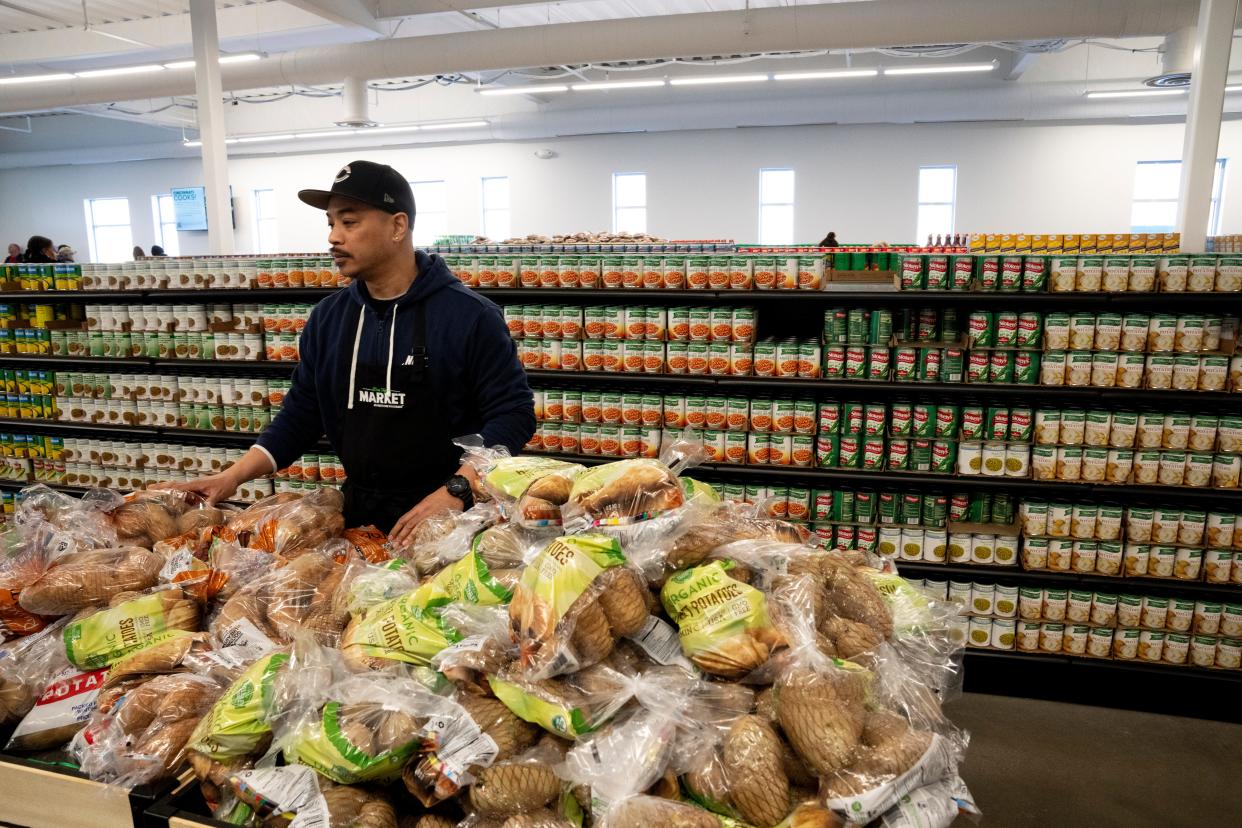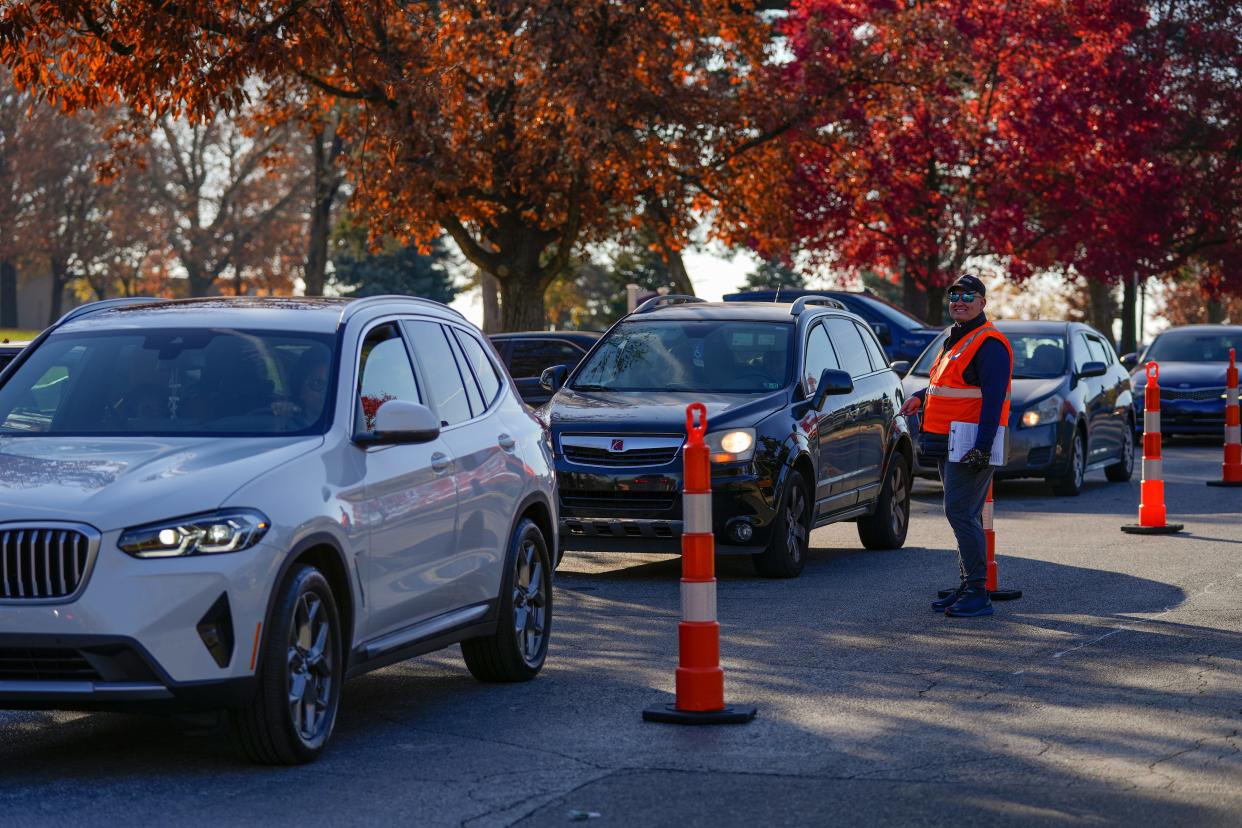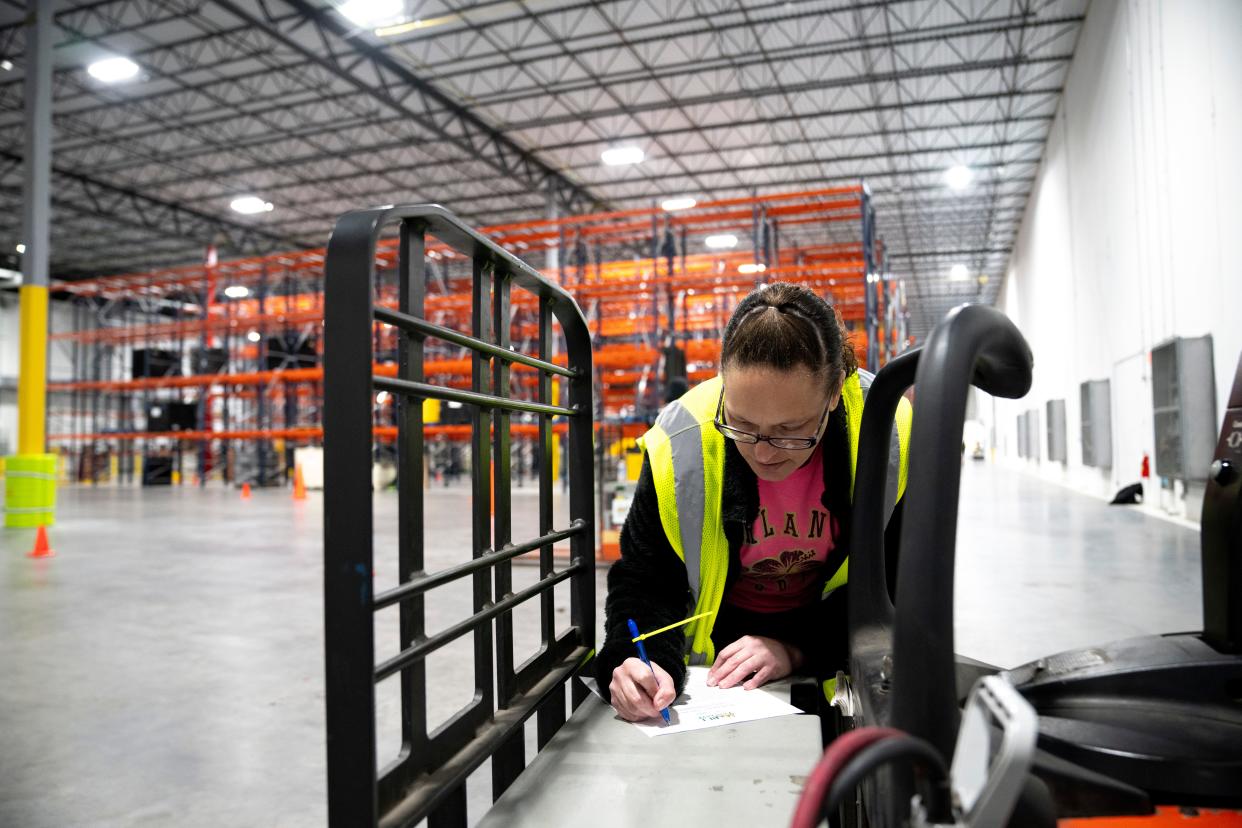Freestore Foodbank suffers blow to donations amid more hunger, higher food prices

The food bank that helps fight hunger throughout the Greater Cincinnati metropolitan area is facing a struggle of its own this year.
The Freestore Foodbank saw a drop in monetary donations during the last quarter of 2023, which, when combined with rising food prices, pushed the nonprofit into a $3.5 million deficit to end this fiscal year – with no definite relief coming.
The agency is not alone. Food banks across the United States have reported lower donations amid a greater need among families for food.
It is the result of a continuing fallout from the COVID-19 pandemic emergency era, said Kurt Reiber, Freestore Foodbank president and CEO.
"People are still reeling," Reiber said. "They have spent their reserves and they are now confronted with higher prices at the grocery stores, higher prices at the gas station, general inflation. And they don’t have any cushion to fall back on."
Even as the economy recovers people who have benefited remain anxious about spending, and the future, said Dipanjan Chatterjee, vice president and principal analyst at global marketing research company Forrester.com, who teaches at University of Cincinnati’s Kautz-Uible Economics Institute.
For the food bank, the downturn in donations was compounded by the deaths of four major donors last year, Reiber said. In addition, he said, the Freestore lost $350,000 in human services funding and faced price increases like everyone else.
Despite all of it, the food bank’s board of directors has “doubled down” on its mission to feed the region, Reiber said.
"We're not shutting down."
Food bank to use emergency funds to ensure hungry are fed
The Freestore Foodbank’s website lands on a page that provides the viewer with ways to donate.
The food bank had already forecast a $1.5 million deficit in its current budget, but because of the donations drop, increased food prices and a loss of $350,000 in human services funding, that plan is now expanded to $3.5 million.
“We want to try to reduce that gap," Reiber said, "but if we have to dip into reserves in order to keep feeding the families, that’s an option we have to tackle."
He acknowledged the plan won't work over a long period of time.
"Using our emergency reserves is not a sustainable model, so, no, Freestore will not be able to continue to meet the increased demands and higher prices without monetary donations increasing," Reiber said.
But for now, at least, it will help the agency feed the region, he said.
The food bank currently is on pace to exceed its distribution to 42 million pounds of food (during the fiscal year, July 1, 2023-June 30, 2024) from 40 million pounds of food at the peak of the pandemic, Reiber said.
Freestore distributes food to neighborhood food pantries, including 70 school-based pantries, five on college campuses and more than a dozen at health clinics. It also serves congregate eating locations, such as senior centers, delivering an estimated 38 million meals per year to hungry people.
The agency also has its own pantries, the Liberty Street Market in Over-the-Rhine and the Bea Taylor Market in Riverside, which faced a 42% rise in costs from the last two months of 2022 to those in 2023. The agency spent $300,000 in November and December 2022 for its pantries’ food and $425,000 the same two months in 2023, records show.

Food banks across the nation serve more people with fewer resources
The crisis of greater hunger and fewer resources has been plaguing food banks across the country. Part of the problem was an end to emergency funds for a supplemental nutrition assistance program, which set back families that were depending on the federal program for food.
The staggering hunger crisis in America: How you can help struggling food banks
And even as inflation has tempered, said Chatterjee, people who are living more comfortably than they did in 2022 are still paying higher prices than before the pandemic, and many are worried about the future.
"The average person has higher income from their occupations and greater wealth from their assets,” Chatterjee said. Inflation has slowed down from 2022 highs, but, "Consumer sentiment is wallowing in the depths of despair."
He credits that to the trauma of surviving a "many lifetimes over" global pandemic, food prices that are 25% higher than before the pandemic, high interest rates and thin savings. Added to that, Chatterjee said, is a "disenchantment" with both major U.S. political parties, resulting in uncertainty about the future.
The economic improvement didn't impact everyone, Chatterjee said, and those who haven't seen any recovery for their families are more likely to end up in food lines.
For about the past year, they included Cassie Reinecke, 41, of Hartwell.

"I've lived in Cincinnati my whole life," she said. "After the pandemic, we were living in Norwood and our (rental) house sold out from under us."
She and her husband, Chris Campbell, moved their family to Hartwell, but took a hit on their savings.
Now she's enrolled in a Freestore program that gives people the skills they need to earn a living wage. She still visits the Liberty Street Market but less often.
Her story is familiar to Reiber and others who operate the Freestore Foodbank.
“We’ve had people living paycheck to paycheck, having those paychecks go away, dipping into their savings,” Reiber said.
“So they ended up in our food lines.”
This article originally appeared on Cincinnati Enquirer: Freestore Foodbank sees donations drop amid hunger, rise in food cost
